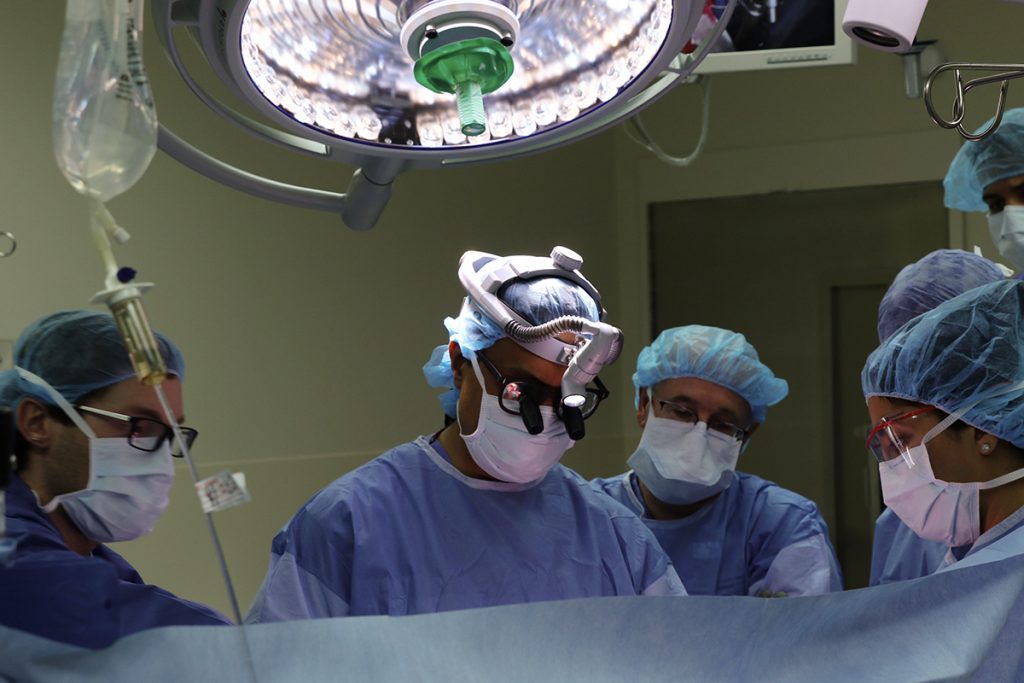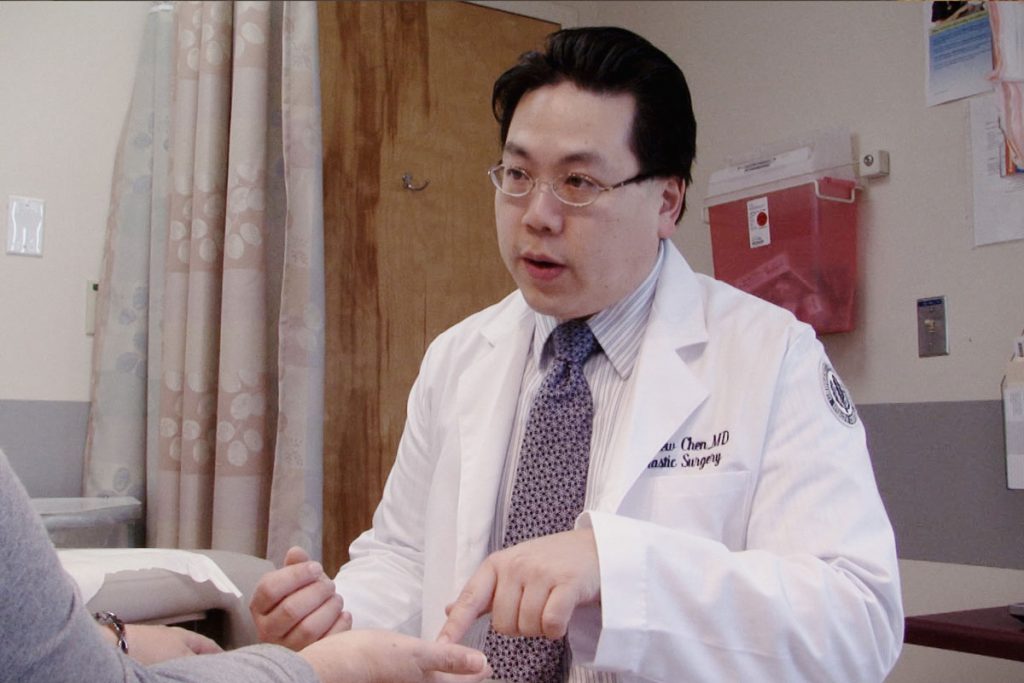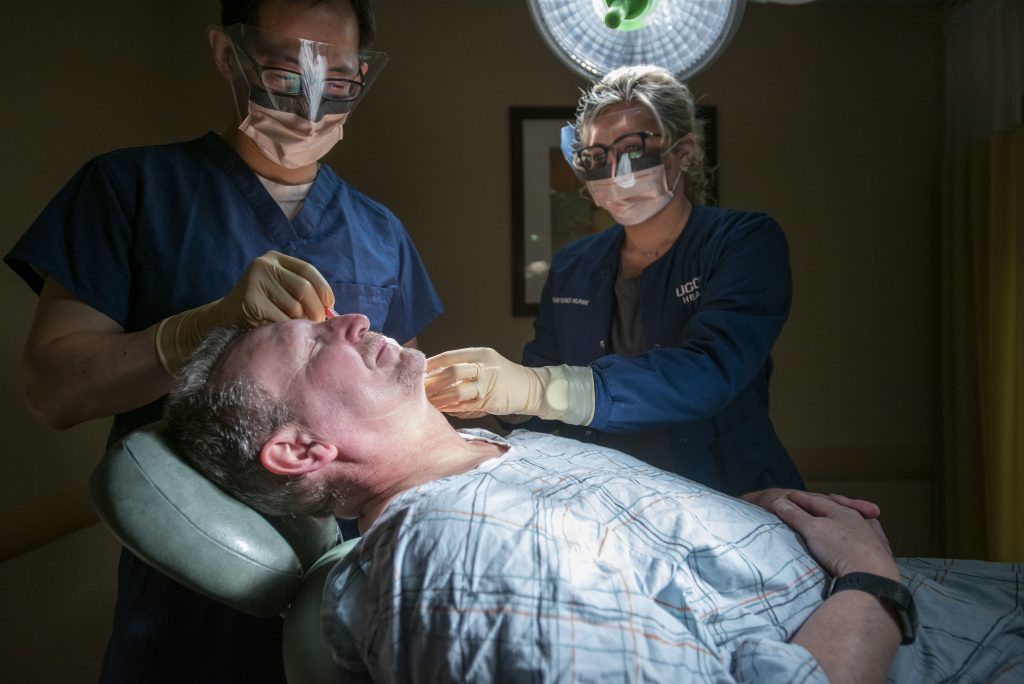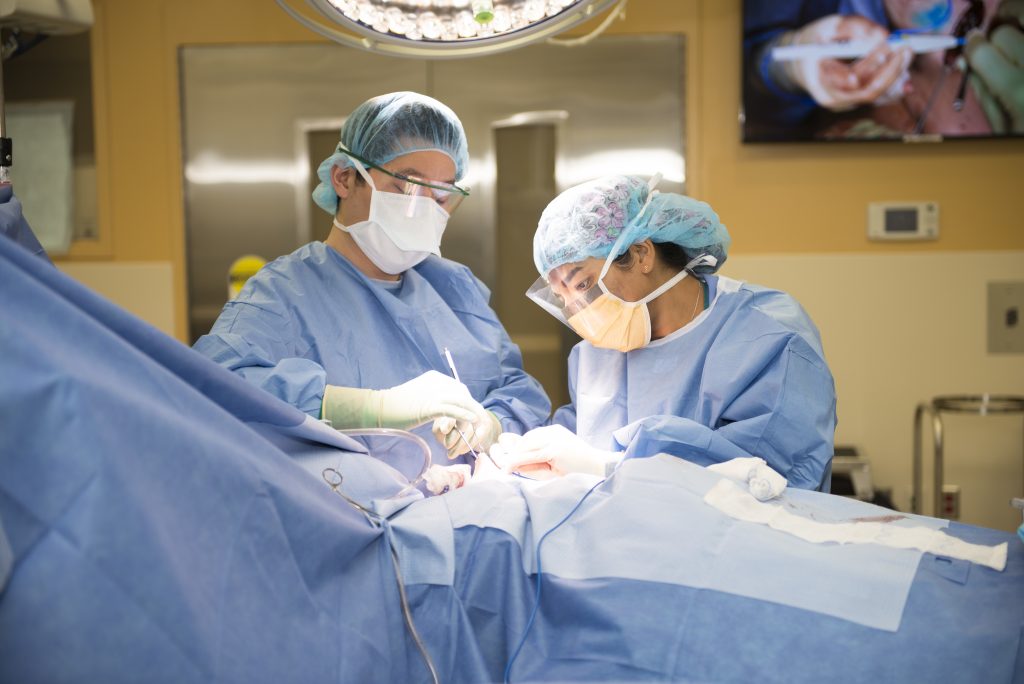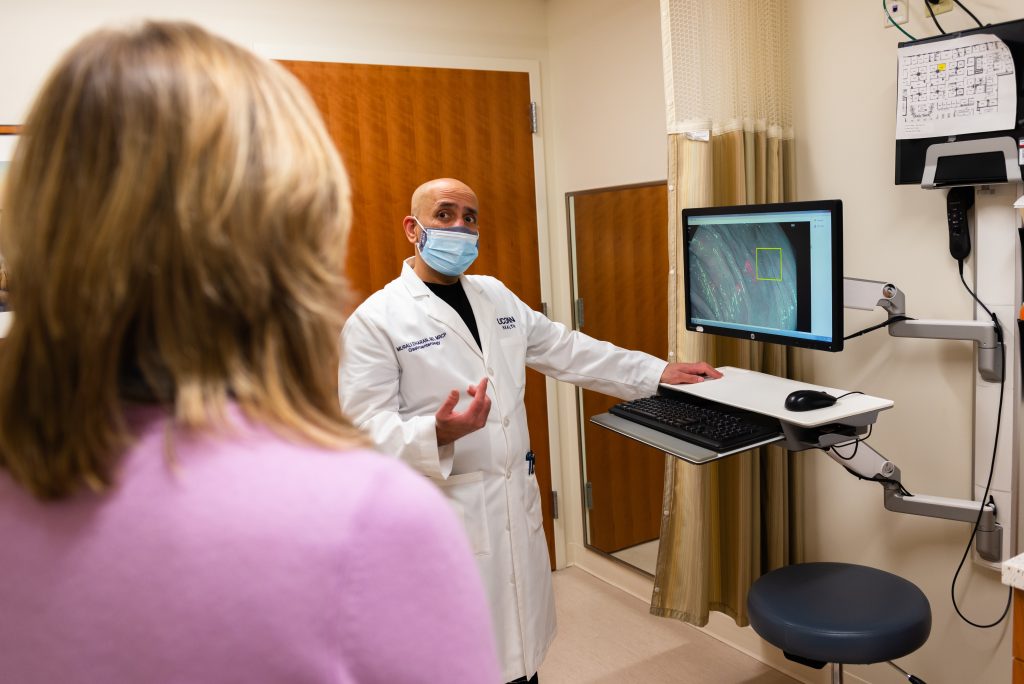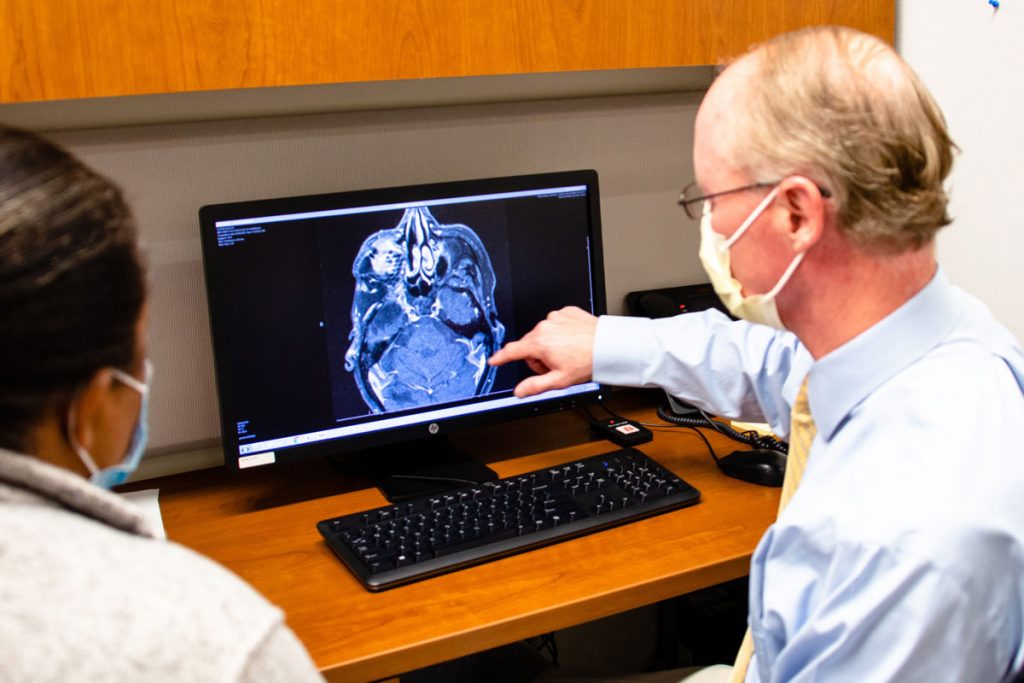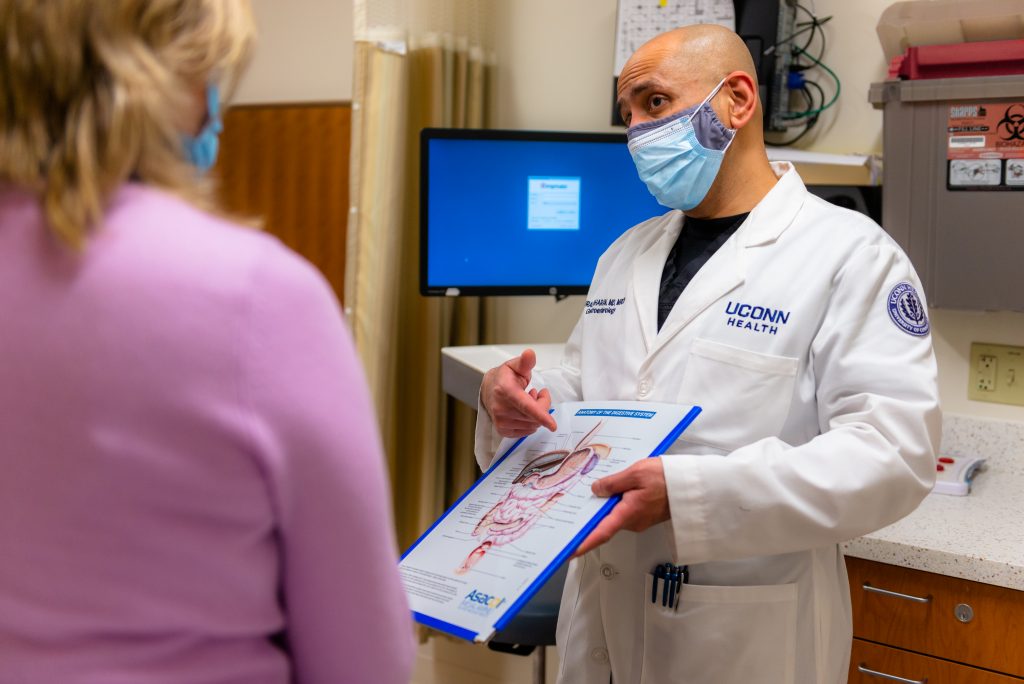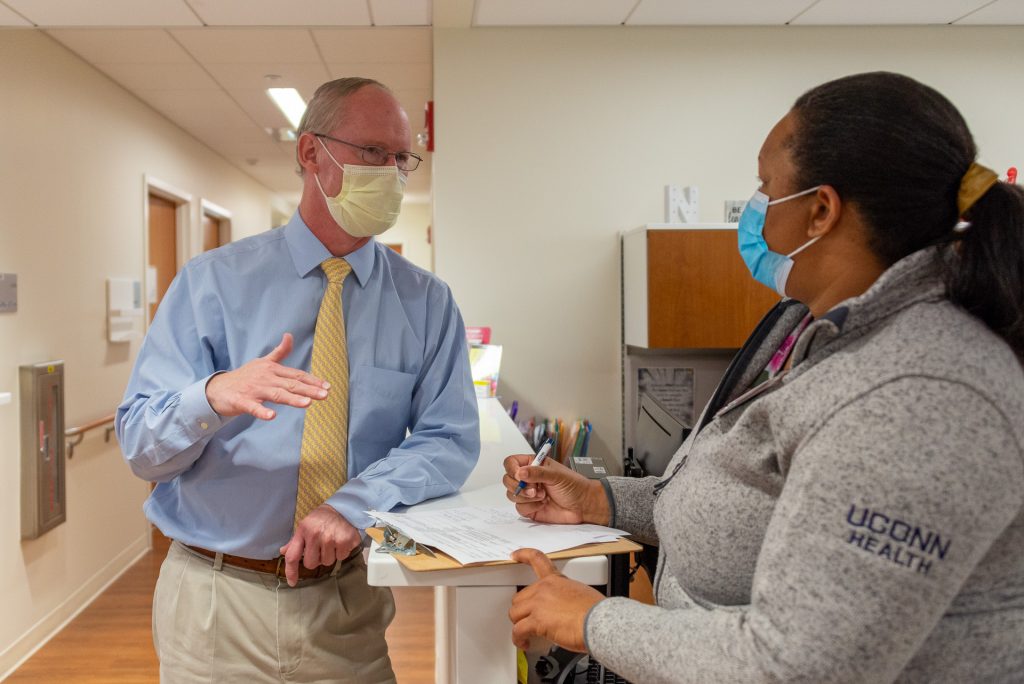Cancer
2021 Top Doctors Named by Connecticut Magazine
See which 43 UConn Health physicians have been named 2021 Top Doctors by Connecticut Magazine. Plus, read more about four UConn Health doctors and their additional unique talents beyond their daily practice of medicine.
June 2, 2021 | Lauren Woods
Life of Young Mom with Sickle Cell Disease Improved by New Drug
Patients at UConn Health's New England Sickle Cell Institute have a range of advanced health management options available to them
June 1, 2021 | Lauren Woods
Establishing Guidelines for Surgery After Skin Cancer
Physicians now have evidence-based recommendations for when skin cancer leaves a patient in need of reconstructive surgery. UConn Health’s chief of plastic surgery, Dr. Andrew Chen, led a national brain trust to come up with them.
May 25, 2021 | Chris DeFrancesco '94 (CLAS)
Skin Cancer, When Found and Treated Early is Highly Curable
An estimated 3.6 million Americans are diagnosed with Basal Cell Carcinoma each year, the most common type of skin cancer. Early diagnosis and treatment is key.
May 18, 2021 | Jennifer Walker
UConn Health First in New England to Offer Surgical Navigation for Breast-Conserving Surgery
Leading the way in breast-conserving surgery, UConn Health is the first hospital in New England to offer the surgical navigation system by EnVisio.
May 12, 2021 | Jennifer Walker
Debunking Skin Cancer Myths
Skin cancer is the most common cancer in the United States. May is skin cancer awareness month and we debunk some common myths about this disease and provide some tips to reduce your risk.
May 6, 2021 | Jennifer Walker
Death of ‘Black Panther’ Star Sheds Light on Young Adults’ Colon Cancer Risks
In a year marked by painful losses, movie fans have another reason to grieve: Chadwick Boseman, the star of the popular film "Black Panther," died Aug. 28 at age 43, following a four-year battle with colon cancer. Boseman was among a growing number of young adults to be diagnosed with colon cancer, a condition once regarded as an older person’s disease.
March 17, 2021 | Jennifer Walker
High-Profile Brain Tumor Therapy Trial Chooses UConn Health
An immunotherapy derived from the polio virus has shown improved survival rates in early-phase trials in patients with an aggressive type of brain tumor known as glioblastoma. UConn Health will be one of a select few sites in the U.S. for the second phase, which will pair it with the cancer immunotherapy pembrolizumab (Keytruda).
March 4, 2021 | Chris DeFrancesco '94 (CLAS)
UConn Health Minute: Preventing Colon Cancer
Colon cancer is a leading cause of death in the U.S. because when it is detected late, it is very difficult to treat. Dr. Murali Dharan, director of the Advanced Endoscopy Program at UConn Health, explains that having a screening colonoscopy is an important step in prevention since it can identify and remove the polyps […]
March 3, 2021 | Carolyn Pennington
UConn Health Minute: Understanding Brain Tumors
Cancerous or malignant, brain tumors tend to grow quickly and disrupt the way your body works, and this can be life-threatening. As UConn Health neuro-oncologist Dr. Kevin Becker explains, interdisciplinary collaboration and a patient-centered approach to care is key in identifying brain and spine tumors early and providing the most advanced treatments available.
November 19, 2020 | Carolyn Pennington
